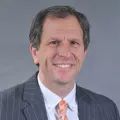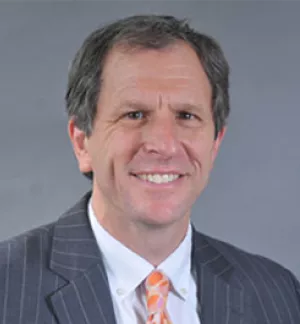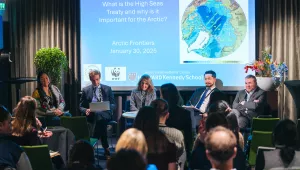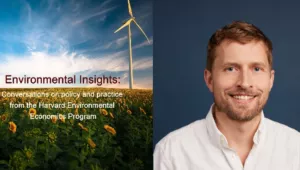This page is for archival purposes as its content is no longer available. Please contact us for more information or use the search box in case this isn't what you are looking for.
In a political era characterized by moving backward on the environment, the shift in leadership on Beacon Hill has the potential to herald a watershed of innovative and constructive policy.
Gov. Mitt Romney's selection of Douglas Foy to direct the newly created Commonwealth Development post, an executive position with a broad portfolio of economic development and environmental protection, signals a new direction in environmental and economic policy in two significant ways.
First, as the president of the Conservation Law Foundation for more than 20 years, Foy was developing relationships with utilities, manufacturers and government, leading to market-based policies that were cost-effective yet environmentally friendly. Yet CLF -uses the courts to reign in industry (and government) that abuses the public trust.
Second, the creation of the new Commonwealth Development post is an attempt by the governor to, as he has stated, "bring about the collaboration necessary to achieve sustainable growth and prosperity, and to make government more efficient." Bringing transit, housing, development and environment agencies under one umbrella has the potential to integrate policy.
Massachusetts now has a relatively independent governor whose early actions suggest new thinking about environmental policy at a time when we are forced to be more creative because of our fiscal crisis. Beacon Hill's restructuring actions should be governed by a few rules of thumb:
** Understand the intrinsic link between environment and economic development. Economic development policy is doomed if environmental considerations are ignored, as our declining fisheries have shown. Environmental policies will fail without being integrated with development policies (i.e., protecting green space while also having policies that encourage sprawl).
** Build partnerships. Especially in a time of fiscal crisis, the state needs to build and maintain collaborative partnerships between the public and private sectors, academia and government, and local and federal government entities. For example, partnerships among states have been crucial in the Northeast's fight to address airborne pollution from the Midwest.
** Harness science and technology. Massachusetts is blessed with an enormous research and development capacity, and should more actively harness these capabilities and help set research agendas.
** Negotiate and mediate. While environmental protection and economic development are not mutually exclusive, trade-offs and conflicts are inevitable. Finding mutually beneficial gains and mediating different parties lends legitimacy to governance and often results in a bigger pie (not just a fairer way to cut up an existing pie).
In the short and long terms, Massachusetts will face critical decisions about its environment and its economy. How do we maintain the coastal fishing communities while assuring fish for future generations? What sources of energy should we use to balance reliability, cost, safety, national security and environmental protection? How do we meet consumers' desire for more malls while protecting habitat?
The governor has taken bold initial steps in reforming state government to better answer these questions and lay the groundwork for a more integrated, workable and sustainable environmental policy for Massachusetts.
Cash, David. “Foy Upgrades Environment for Conservation, Economy.” Boston Herald, February 1, 2003





